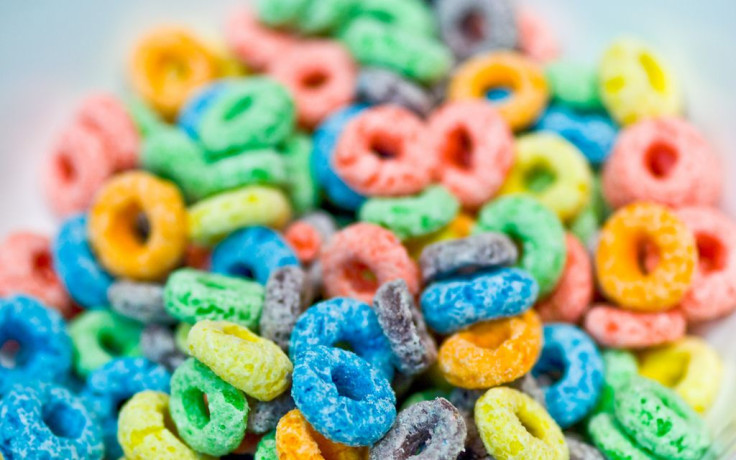Sugar Rush Stays In Brain's Memory As Way To Conserve Energy For Later

A new study into the diets of fruit flies could hold great potential for understanding the complexities of the human affinity for sugar.
The modern brain is no match for the modern diet. Food has transformed from a source of fuel into a mindless obsession with taste, now steeped in the luxuries of refined sugars and simple carbohydrates. Emerging brain science suggests this developing palate has many of its sugar-seeking roots in evolution, but recent forces have dangerously started to raise the stakes.
A team of researchers from L'École des Neurosciences in Paris recently studied a group of fruit flies to learn how sweet meals impact their brain chemistry and memory. One group of flies was exposed to the odor of a diet soda with little sweetness, while the other smelled a regular soda packed with sugar, before both groups consumed their respective meals. Follow-up observation of the flies’ dopamine signals in the brain, which are associated with reward, showed heightened activation in the full-sugar group. Twenty-four hours later, the flies that had been exposed initially to the regular soda were more likely to prefer sugar in later tests.
“Altogether,” the team wrote, “these findings demonstrate that the Drosophila brain remembers food quality through a two-step mechanism that consists of the integration of olfactory and gustatory sensory information and then post-ingestion energetic value.” In other words, the sugar high stuck with them.
These simple models may have grave implications for our own health. When prehistoric humans roamed the earth, their relationship with sweetness extended no further than carrots. Fruits and vegetables provided natural sources of sugar, which gave our survival-minded ancestors more fuel to hunt and stay alive. Whatever sugars they didn’t use eventually turned to fat, which could be called upon when food was scarce. Over time, however, we evolved out of the food chain. Factories joined farms in churning out the things we ate, and sugar didn’t just appear in our food naturally; we started adding it.
Unfortunately, we’ve outpaced our own biology. Our brains, like the fruit flies in the recent study, are stuck craving sugar as if it’s a matter of life or death. At best, we see it for its energy value. At worst, it serves no purpose at all. In 2008, a study found sugar could yield the same addictive effect in rats as hard drugs, as it released not only dopamine but opioids, too. “The evidence supports the hypothesis that under certain circumstances rats can become sugar dependent,” the researchers wrote. “This may translate to some human conditions as suggested by the literature on eating disorders and obesity.”
Taken together, the findings imply a certain degree of helplessness among heavy consumers of sugar. Weight loss is typically seen as a matter of will power: If only the third of Americans who are overweight wanted it badly enough, we may assume, they’d be able to drop the excess poundage. But the recent research suggests describing a sugar fix like a drug addiction is a more apt analogy. And few people would think it appropriate to condemn a heroin user’s attempts at quitting because he or she “didn’t really want it.”
If the fruit-fly model is anything to go on, reversing the sugar craze simply begins with deprivation. With addiction comes withdrawal. In the study, the French researchers saw that the flies exposed to regular soda remembered the good feeling they got — the dopaminergic response — long after they had finished their meal. Perhaps more alarmingly, they even remembered it until the next one. We can take a lesson from their book and train our brains not to crave sugar, and to supply us with energy we can instead rely on slow-burning sources of energy like protein. For the sugar we do get, we can help ourselves by exercising regularly and burning off the excess.
Modern cravings are such that even if we have plenty of energy, we are still compelled to find more. Thankfully, other parts of our evolution, the ones that let us turn the microscope back on ourselves and protect us from our own biological foibles, have developed just as much.
Source: Musso P, Tchenio P, Preat T. Delayed Dopamine Signaling of Energy Level Builds Appetitive Long-Term Memory in Drosophila. Cell Reports. 2015.



























